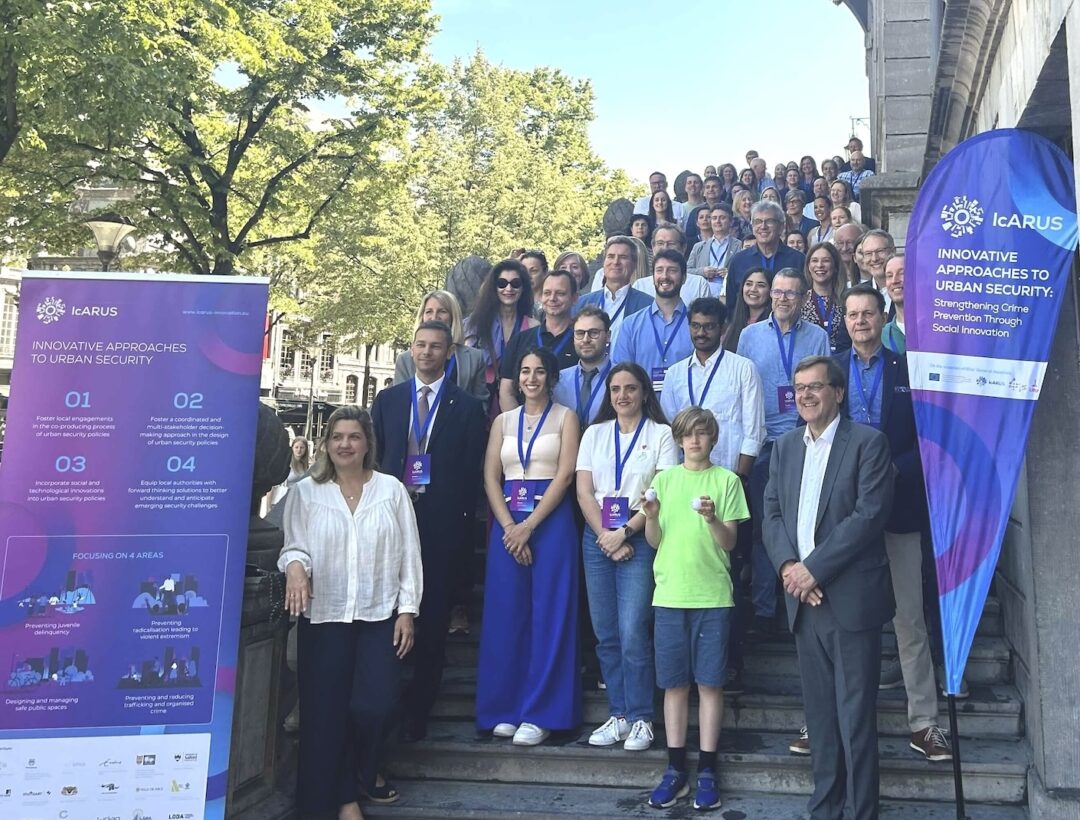As part of the Cutting Crime Impact (CCI) project, Efus analysed European projects aimed at preventing or reducing petty crime. What tools and solutions are most commonly recommended? What hinders their adoption by end users (law enforcement agencies and policy makers)?
Paris, June 2019 – It is a well known fact that petty crime has a high impact on the residents of affected neighbourhoods: the theft of mopeds or vandalism in building entrance halls generate feelings of insecurity that can ultimately lead to mistrust in democratic institutions ; burglary results in residents feeling unsafe at home, for example.
The Cutting Crime Impact (CCI) European project, led since October 2018 by the University of Salford (GB) and in which Efus is a partner, seeks to provide tools for law enforcement agencies (LEAs) and local and national authorities to enable them to better prevent this type of crime.
>>An analysis of 45 European projects
As part of the CCI project, Efus analysed EU-funded research projects conducted in the framework of the H2020, FP7 and FP6 research and innovation programmes that have produced over the past decade tools to respond to issues of petty crime and feelings of insecurity. The study identified existing tools that will serve as a reference for the CCI project and provided knowledge on what hampers their application, in particular for end users such as LEAs and local authorities.
To this end, Efus analysed the CORDIS European database that includes data on all EU-funded research and development programmes as well as security programmes developed by the European Commission. Furthermore, telephone interviews were conducted with some of the projects’ coordinators, practitioners and end users.
>>Two types of tools
The analysis showed that European projects recommend mainly two types of tools: on the one hand, those designed to increase in-depth knowledge, practice collection and conceptual baselines in order to ensure security policies are evidence-based, and on the other, technological tools that are designed to facilitate and operationalize the practices of LEAs and their communication channels with local communities.
The first category includes mostly innovative knowledge platforms (with concepts, recommendations for policy design and implementation, evidence-based practices and experiences from EU cities, urban data, crime statistics and databases) and mobile applications.
The second category toolkits are practice-oriented and are built with the aim of developing physical, tangible and technological solutions which include prototypes, mobile alarms, reporting platforms and modular security portals, as well as practices such as training programmes for police forces and mechanisms for the protection of data and privacy.
>>The main barriers to implementation
The other aspect of the study consisted of identifying barriers that prevent cities from adopting the tools and solutions recommended by these European projects. Efus identified five categories of barriers.
1) Difficulty in sharing or transferring
The experience from European projects shows that it is necessary to improve mechanisms for the exchange of information between European cities and the identification of crime prevention best practices.
2) The gap between the project’s objectives and the real implementation capacities
This gap concerns organisational capabilities, the time needed for implementation, local authorities’ procedures, as well as resistance to change. Another barrier (in particular for LEAs) is the difficulty to access the resources required for adopting such tools.
3) The technological gap
Some European projects require developing technologies or programmes that would need not only additional funding, but also time, human resources and training.
4) Human barriers
Some projects require that LEAs cooperate with local communities, which implies that the latter engage in the project and trust police.
5) Respect of privacy and data protection
For projects that include the implementation of technological tools, issues of data protection and respect for privacy can be a hindrance, notably because regulations and laws differ from country to country.
>>Solutions and recommendations
In order to overcome these obstacles and improve the result of European projects centred on petty crime and feelings of insecurity, Efus and CCI recommend projects:
- involve end users right from the start of the project and throughout;
- plan an EU-funded post-implementation phase to provide methodological and technological support to end users;
- improve knowledge transfer, for example by providing a guidebook on how to use recommendations and tools produced by European projects;
- ensure data protection, either through technological solutions (dedicated servers) or an independent monitoring committee.
The CCI consortium will take into account the findings from Efus’ review of EU-funded research in subsequent phases of its 36-month project.





